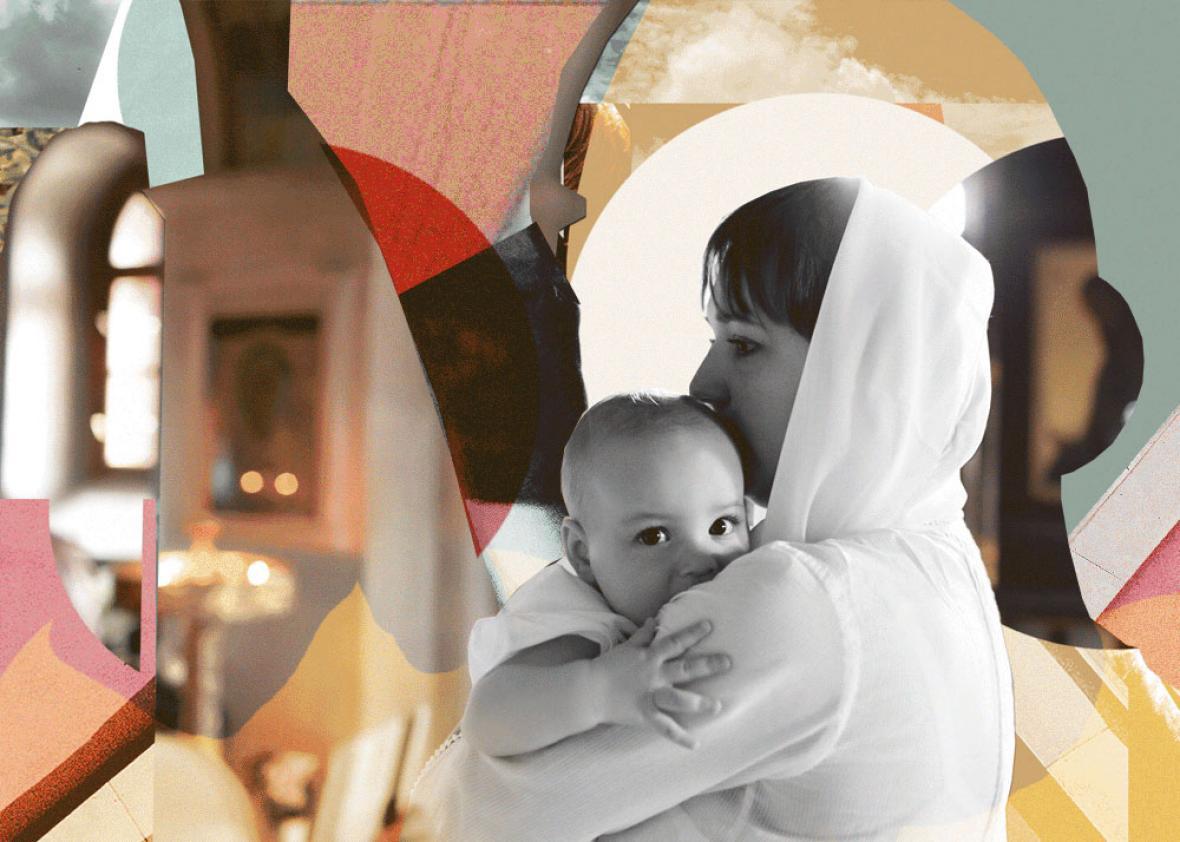In his 1981 encyclical Laborem Exercens, Pope John Paul II wrote that “labor should be structured in such a way that women do not have to pay for their advancement by abandoning what is specific to them and at the expense of the family.” It’s fair to say that labor in the United States is not “structured in such a way,” which is the politely papal way of saying that this remains the only developed country in the world that does not require employers to offer even a single day of paid leave for new parents.
The importance of paid family leave has been gaining attention in American Catholic circles in recent years, and a Pew poll this spring showed more than 80 percent of Catholics favor paid maternity leave. To the extent that paid leave decreases the financial burden of parenthood, some advocates argue it could discourage abortion. And on a broader level, Catholic social teaching emphasizes that rights accrue to workers because of their essential dignity as human beings. “Workers are not simply instruments,” said Julie Rubio, a professor of Christian Ethics at St. Louis University. “They’re persons, who have to be treated as persons, with lives and responsibilities.”
Institutionally, however, American Catholic organizations have been slow to extend paid leave to their own employees. When the National Catholic Reporter surveyed 177 dioceses on parental leave policies in 2015, only 37 responded, and of those, only one offered a measly week of paid leave for all employees. A few others offered paid leave to only some employees, but 32 dioceses offered no paid leave at all, forcing parents to patch together unpaid time with vacation and sick time after a baby’s arrival. When Rubio researched leave policies at Catholic universities more than a decade ago, she found them lagging behind comparable public universities.
Employers always make justifications for not offering generous benefits packages, but Catholic institutions at least have some unique excuses. For one, many hospitals and schools historically relied on the free or low-paid labor of nuns, and have struggled financially with the shift to full-salaried lay staff. At one Catholic hospital in St. Louis, for example, almost every department was run by nuns in the 1960s, but by 2011 just 11 of 22,000 employees were nuns. (The number of nuns in the United States has dwindled to less than 56,000 from a peak of 180,000 in 1965, and the overwhelming majority of them are over 60.) The population of priests is aging quickly, too, which creates an additional financial stress on church coffers; Reuters estimated in 2015 that the American church’s pension budget shortfall was almost $2 billion. Huge payouts to sex-abuse victims and declining church attendance and Catholic school enrollment have added to the financial woes. Meanwhile, family benefits of all kinds have often been a blind spot in an institution historically led by childless men and women.
But some critics say Catholics ought to be leaders when it comes to leave, as a matter of institutional practice and policy pressure. Last year, the archdiocese of Chicago announced it would begin offering employees 12 weeks of paid parental leave, making the country’s third-largest archdiocese its most generous, too. The new policy, which went into effect last July, applies to about 170 Catholic schools, 340 parishes, and the diocese’s central office staff. Chris Connova, the director of personnel services at the archdiocese, said more than 100 people have taken advantage of it in this first year. “It’s a way for us to live out what we teach and preach,” he said. It’s also, he added, a way to for the archdiocese as an employer to make non-profit salary packages seem a bit more attractive to high-quality employees. Some smaller Catholic organizations, including the Washington-based Jesuit Conference of Canada and the United States, have made a similar shift in recent years.
The mainstream cultural and political conversation about family leave has long since moved beyond “maternity leave” to encompass men and times of family need other than childbirth. Pope Francis’s approach to family policy, meanwhile, remains traditionalist in spirit: a defense of leave as a particular necessity for women, because of one gender’s special responsibilities within the home and family. Pregnant women “must be protected and helped in this dual task: the right to work and the right to motherhood,” he told a group of Italian business executives in 2015. “The challenge is to protect their right to a job that is given full recognition, while at the same time safeguarding their vocation to motherhood and their presence in the family.” It’s not a perfectly contemporary argument for leave. But it’s better than nothing—and nothing is what too many American workers, even those employed by Catholic institutions, are stuck with for now.
